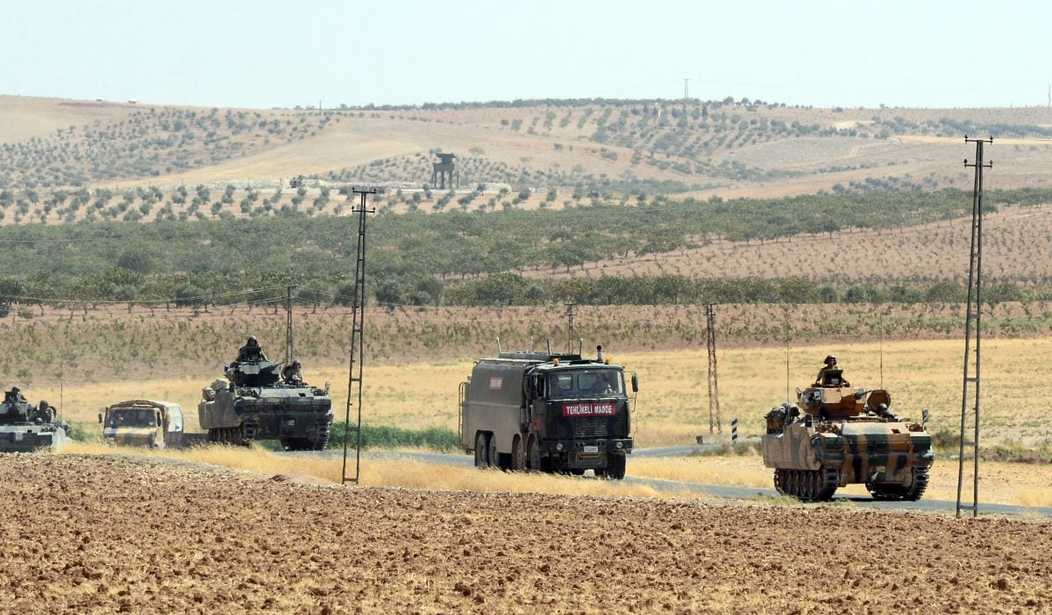Turkey is intensifying its offensive over the border in Syria, taking on not only Islamic State fighters but also the Kurdish militia, the YPG.
The YPG is one of the most effective of the rebel militias fighting President Assad. But Turkey sees them as an arm of the Kurdish terrorist group, the PKK, and has attacked YPG units occupying a Syrian town.
The problem is that U.S. special operations forces are embedded with some YPG units and could be unintentional casualties of Turkey’s war on the Kurds.
The clashes underscore the complexity of the U.S.-led international coalition campaign to reverse Islamic State’s territorial hold in Syria and the dangers faced in that mission. American special operations forces are embedded with the YPG and earlier this month helped them oust Islamic State from the town of Manbij, less than 20 miles from Saturday’s hostilities. In general, those U.S. special operations forces have close contact with their Turkish counterparts, and they rely on Turkey for their rear supply lines, according to people familiar with the situation.
The U.S. also supports the Turkish-led campaign launched last week aimed at clearing Jarablus of Islamic State positions and mop up any fighters that escaped Manbij, approximately 20 miles further south from the Turkish border.
Turkish officials have said the timing of Operation Euphrates Shield was related to the fact that the YPG had broken a promise given to the Americans and Turks that the group’s units would withdraw from Manbij once it was liberated from Islamic State and allow local Arab-majority inhabitants to control the area. Instead of retreating to the east side of the Euphrates River outside Manbij, YPG in recent weeks has moved to expand westward in a new land grab, according to U.S. and Turkish officials.
Turkey considers the YPG to be a terrorist group and has a declared national security objective to prevent the YPG from linking up its disparate territorial holdings in Syria into a larger autonomous region. Turkey sees the YPG as an armed affiliate of its own domestic Kurdish militant group known as Kurdistan Workers’ Party, which has been fighting Turkish security forces for decades with the aim of achieving its own autonomous ethnic state.
Turkey wants to install the friendly Arab rebels fighting in its current operation along the Manbij-Jarablus corridor as a buffer against Kurdish groups.
Turkey now has at least 380 soldiers and 40 tanks inside Syria as part of the operation that approximately 1,000 Syrian rebels are also involved.
On Saturday, some of those Syrian Arab units said they seized a number of villages south of Jarablus when clashes with YPG units broke out. Social media posts from those Arab rebels said clashes were fiercest around the village of Amarneh, around 5 miles south of Jarablus.
We’ll probably never know if Americans are killed in these clashes. Special operations casualties are rarely reported. But the danger is real and given the strained relations that currently exist between Turkey and the U.S., it is doubtful President Erdogan would take American sensibilities into account when launching an attack.
Beyond that, attacking the YPG is self defeating for Turkey. Weakening the militia is counterproductive given their demonstrated skill on the battlefield. But Erdogan has launched this offensive to shore up what he sees as Turkey’s national security. Any other considerations, including overthrowing President Assad, are secondary.










Join the conversation as a VIP Member